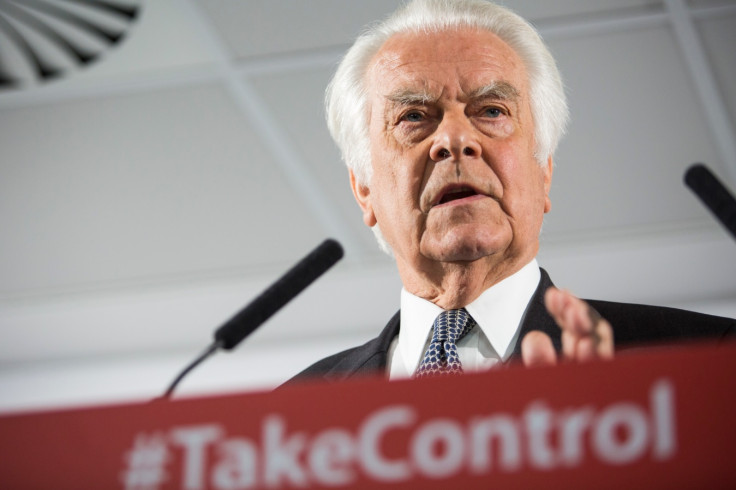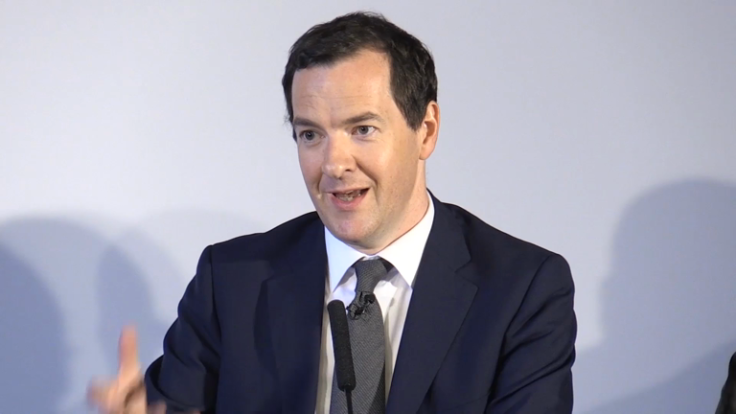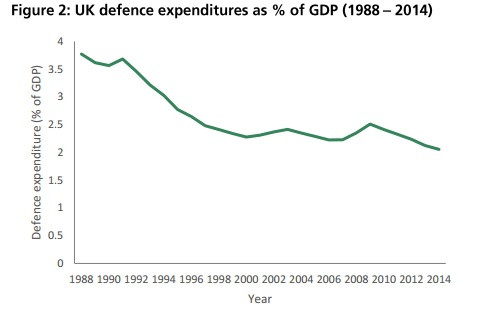UK must boost defence budget to be taken seriously by US says Lord David Owen
Former Labour foreign secretary says UK should increase spending to 2.5% of GDP.

The UK government must boost its defence spending commitment to 2.5% of GDP in a bid to be taken seriously by the US, according to Lord David Owen.
The former British foreign secretary said the increase from 2% of GDP would also indicate to the EU that the UK is "even more committed" to European stability after a Brexit.
"Only in a revived Nato, where European countries are no longer as President [Barack] Obama rightly accused us of being 'freeloaders', and we make a greater financial contribution, will Europe redress the imbalance between us and President Putin's Russian Federation," Owen said.
"The UK's priority outside the EU and the EEAS [European Union External Action] will now be to strengthen the Atlantic alliance.
"Over the next four years, besides adding the present UK EEAS budget to our contribution to Nato, we will need to move as quickly as we can to devoting 2.5% of GDP to Nato to be seen as serious."
He added: "The UK should also continue to spend the £2bn ($2.4bn) on Eastern Europe we do at present and in other ways help the political stabilisation of the wider Europe. In leaving the EU the UK should demonstrate its continued goodwill with a readiness to increase spending with some coming from the Dfid [Department for International Development] budget.
"When the EU recognizes that the UK is even more committed to European stability as well as security then Brexit will be seen in a different light as strengthening the wider Europe."
Owen made the comments during a speech to the Swiss-based Progress Foundation. The peer quit Labour in the 1980s as part of the 'Gang of Four' to form the Social Democratic Party.
The former doctor was a supporter of the UK's membership of the EU, but opposed Britain joining the Euro currency and later backed the Vote Leave campaign ahead of the 23 June referendum.
'Accountancy trick'

Former Chancellor George Osborne recommitted the UK to Nato's 2% of GDP defence spending target as part of his 2015 Budget.
But the Royal United Services Institute (Rusi) think-tank warned the target would be met thanks to accountancy rule changes.
"On the basis of the rules previously used for its Nato returns, the UK would have been on course to spend £36,820m on defence in 2015: equivalent to 1.97% of GDP," said Professor Malcolm Chalmers, a research director at Rusi.
"In the return actually made to Nato, by contrast, the UK is projected to spend £39,019m, equivalent to 2.08% of GDP. In total, therefore, the UK has added around £2.2bn to its Nato count."
Nato's 2% of GDP defence spending target was set in 2006. The UK was spending 2.5% of its GDP on defence between 1995/96 and 1999/2000, according to the House of Commons Library.
Only five (US, Greece, UK, Estonia and Poland) of Nato's 28 member nations currently meet the 2% of GDP target.
An MOD spokesperson said: "Nato agreed the guideline to spend 2% of GDP on defence and we're one of only five Nato countries to be meeting that, with a defence budget which is the fifth biggest in the world and increasing in real terms every year of this decade.
"We remain committed to our procurement and support activities outlined in last year's defence review and equipment plan."

© Copyright IBTimes 2025. All rights reserved.





















